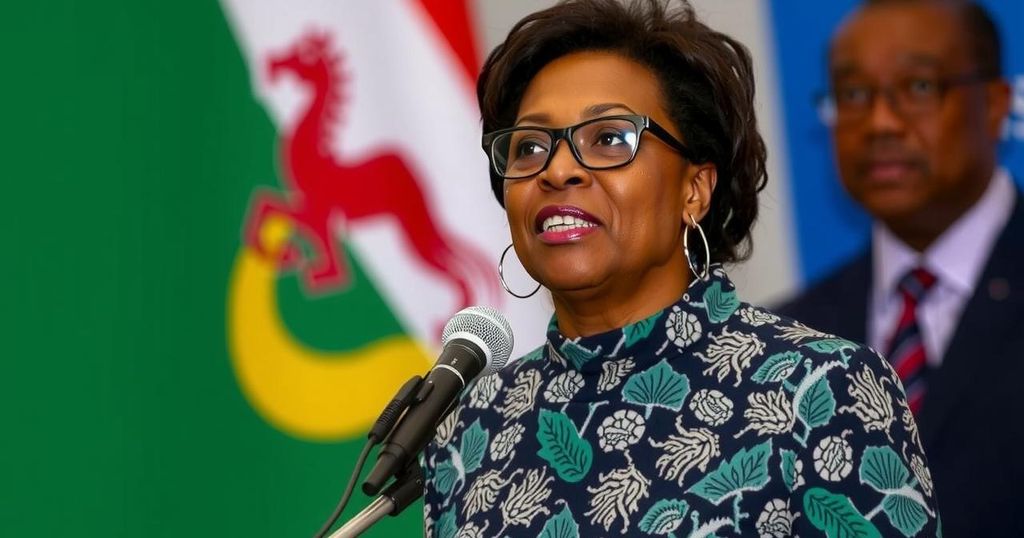Namibia’s Vice President Leads Presidential Election Amid Controversy
Namibia’s Vice President, Netumbo Nandi-Ndaitwah of SWAPO, is leading in early election results amidst controversy over voting irregularities, including a shortage of ballot papers. This election may result in Namibia’s first female president; however, the opposition claims the extension of voting days was illegal and plans to challenge the outcomes in court. Public discontent over economic challenges compounds the existing political tensions.
In Namibia, Vice President Netumbo Nandi-Ndaitwah, representing the ruling South West Africa People’s Organization (SWAPO), is currently leading in early results of a presidential election that has been marred by significant issues. On November 27, 2024, Namibians faced problems including a shortage of ballot papers, prompting the electoral authorities to extend voting by three days. Despite Nandi-Ndaitwah’s strong performance, garnering approximately 56% of the initially counted votes, opposition parties have expressed concerns regarding the legitimacy of the election process and intend to challenge the results in court.
The electoral disturbances have overshadowed her potential historic victory as Namibia’s first female president, and though approximately 220,000 of the 1.4 million votes cast have been tallied, the opposition is preparing legal action. With economic discontent and government corruption affecting public sentiment towards SWAPO, the political landscape remains tense. Opposition leader McHenry Venaani emphasized the importance of upholding the democratic integrity of the country, stating, “It is about our country, it’s about our democratic credentials, it’s about the country that must work for everybody, the poor and the rich.”
The context of this election is rooted in Namibia’s post-independence history since 1990, during which the HP has remained the dominant governing party following the country’s liberation from apartheid South Africa. The electoral process is vital, not only for the immediate political future but also for the democratic integrity that Namibia has built a reputation for within the region. The complications surrounding this election, such as the technical failures and the subsequent extension of voting days, have sparked significant responses from opposition parties, indicating a growing instability in the political framework that has long been a hallmark of Namibian democracy.
In conclusion, the presidential election in Namibia reflects a critical moment for the country as it grapples with both historical significance and present challenges. While Vice President Netumbo Nandi-Ndaitwah leads in early results, the legitimacy of the election is under question due to significant problems that arose during the voting process. The opposition’s plans to contest the results signify a potent demand for accountability and transparency in governance, as underlying economic and political issues continue to shape the national landscape.
Original Source: apnews.com




Post Comment